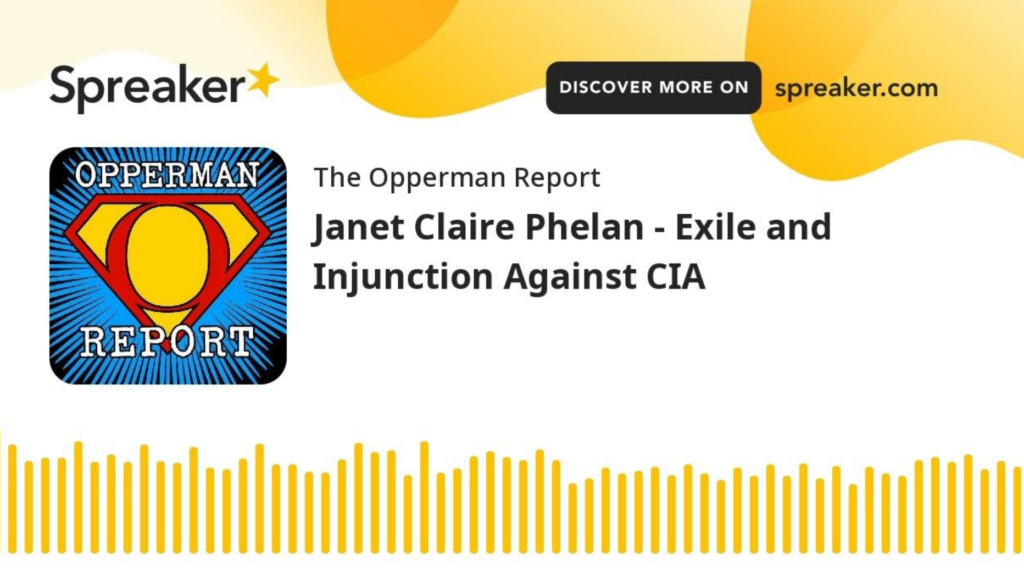In a compelling discussion, investigative reporter Janet Phelan delves into the parallels between her mother’s tragic murder and the ongoing conflict in Israel. With an extensive background in journalism, including contributions to prominent publications like the Los Angeles Times and Orange Coast Magazine, Phelan has shifted her focus to independent media, where her critical voice resonates strongly. Her investigative prowess is highlighted in her book, “EXILE,” which sheds light on controversial subjects often overlooked by mainstream news outlets. As she explores her personal narrative intertwined with broader geopolitical issues, Phelan offers a unique perspective that challenges conventional narratives surrounding violence, justice, and accountability.
At the heart of the conversation is Phelan’s reflection on her mother’s murder, a crime that remains unresolved and has haunted her for years. She draws connections between the personal agony stemming from her mother’s death and the ongoing struggles of individuals caught in the turmoil of international conflicts, particularly in Israel. Phelan argues that violence begets violence, and the systemic injustices faced by individuals in war-torn nations echo her own family’s tragic history. Through this lens, she urges listeners to consider how personal trauma and larger geopolitical events are often interconnected, revealing the pervasive impact of violence on human lives.
Phelan’s analysis extends beyond merely recounting her personal experiences; she emphasizes the necessity of addressing the broader social and political contexts that contribute to individual tragedies. By showcasing her mother’s case, she advocates for the recognition of the victims of violence and the need for accountability for those responsible. This call for justice resonates with the plight of countless individuals affected by conflict around the world, highlighting the imperative to confront systemic issues and demand change to break the cycle of violence.
Additionally, Phelan emphasizes the role of media in shaping public perception of violence and conflict. She critiques mainstream narratives that often overlook individual stories in favor of sensationalized coverage that fails to provide context or depth. By sharing her own story and the ongoing quest for answers regarding her mother’s murder, Phelan seeks to remind audiences of the humanity behind the headlines. Her advocacy for independent journalism underscores the importance of providing space for marginalized voices and highlighting the complexities surrounding issues of violence and justice in society.
As she navigates these intricate themes, Phelan confronts her own experiences with loss and injustice, which serve as a driving force behind her investigative work. Her commitment to uncovering truths and exposing wrongdoing is fueled by a desire to honor her mother’s memory and seek justice not only for her family but also for others facing similar fates. This personal motivation enriches her analysis, offering a poignant understanding of how individual stories can illuminate broader societal issues and inspire a collective push towards justice and accountability.
In conclusion, Janet Phelan’s interview is a powerful exploration of the intersections between personal tragedy and global conflict. By weaving her mother’s unresolved murder into the larger narrative of violence and injustice, Phelan calls for deeper reflection on the cyclical nature of violence and the need for systemic change. Her work stands as a testament to the importance of independent journalism, the necessity of amplifying marginalized voices, and the ongoing pursuit of justice for victims of violence, both at home and abroad. Through her advocacy, she not only honors her mother’s legacy but also sheds light on the shared humanity that is often obscured amidst the chaos of war and conflict.

